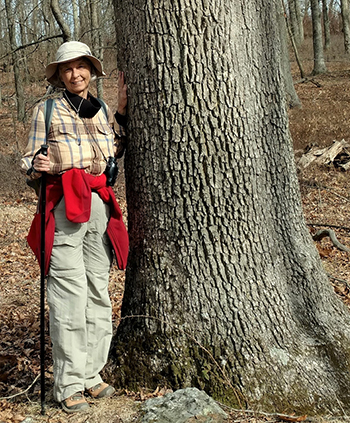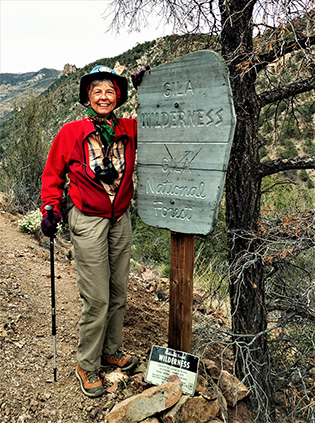
After freelancing for 40 years, it’s hard to remember why I gave up a tenured position at JMU to do it. Graciously, they took me back part time, so I avoided the starving part of becoming a writer. Now retired, my 31 years there earned me the ability to research, from home, virtually any topic to a depth far above (so to speak) my pay grade. Living in the woods in this deeply rural area is a continuing exercise in post-industrial pioneering.
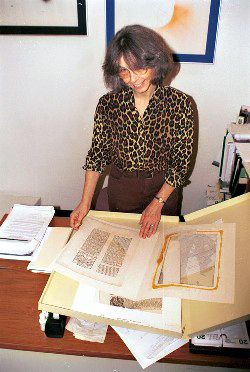
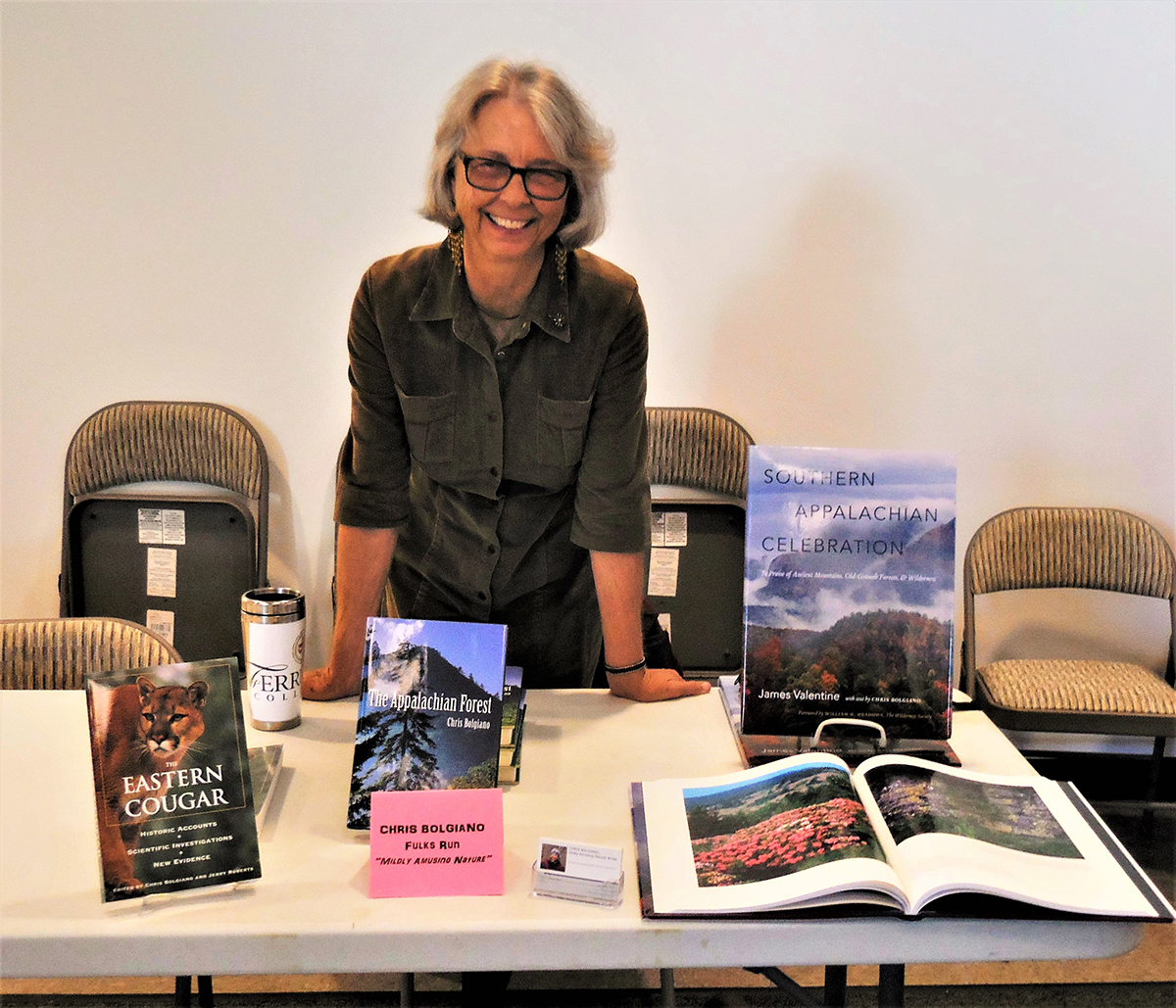
Beginning with rural-based articles in local magazines, I worked up to travel articles for major newspapers, investigative reports for a wide variety of environmental magazines, essays for various anthologies, op-ed columns for widespread distribution, and radio commentaries on National Public Radio’s Living on Earth. I focus my hiking, travel, research, interviews, tree-hugging and writing on the possibility and value of regrowing old-growth forests, living harmoniously with wildlife (especially cougars, coyotes and bears), biodiversity on all scales, sustainable forestry and carbon forestry, and what it means to be an Appalachian Mountain woman.
My career reached an apex in the early 2000s when a prestigious outdoors magazine commissioned me to write a story about wildlife habitat on mountaintop removal lands (land blasted off the tops of mountains and bulldozed into neighboring valleys to expose coal seams), then refused to publish it as too incendiary. That story later appeared in the book, Living in the Appalachian Forest: True Tales of Sustainable Forestry, (Stackpole Books, 2002) which won two literary awards in 2003.
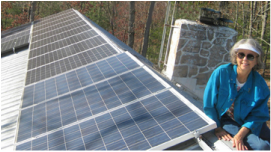
My articles have been published in The New York Times, The Washington Post, Islands, American Forests, Audubon, Wilderness, Orion Afield, Sierra, Appalachian Journal, Virginia Wildlife, German Life, and many other magazines. Three of my six books — The Appalachian Forest, Living in the Appalachian Forest, and Mighty Giants, An American Chestnut Anthology — have won literary prizes, as have various articles and syndicated columns. My essays appear in several anthologies, and I’ve given talks at venues ranging from an unnamed commune in North Carolina to the 50th Anniversary of the Wilderness Act Celebration in NM to Penn State University’s Forest Landowner Conference. Assembling the documentation to authenticate these claims for this website has been exhausting, and I’m sure reading it will be, too. After all these decades, going “Back to the Land” has taken on a deeper, more personal meaning, not just because I’m as old as dirt now, but also because I’ve begun to understand the essential role of forest soil carbon in balancing the world. Rooftop solar panels power my desperate search for the joke behind our environmental tragedy. But really, it’s clear that the joke is on us, as we destroy our own life support systems on this beautiful blue planet.
